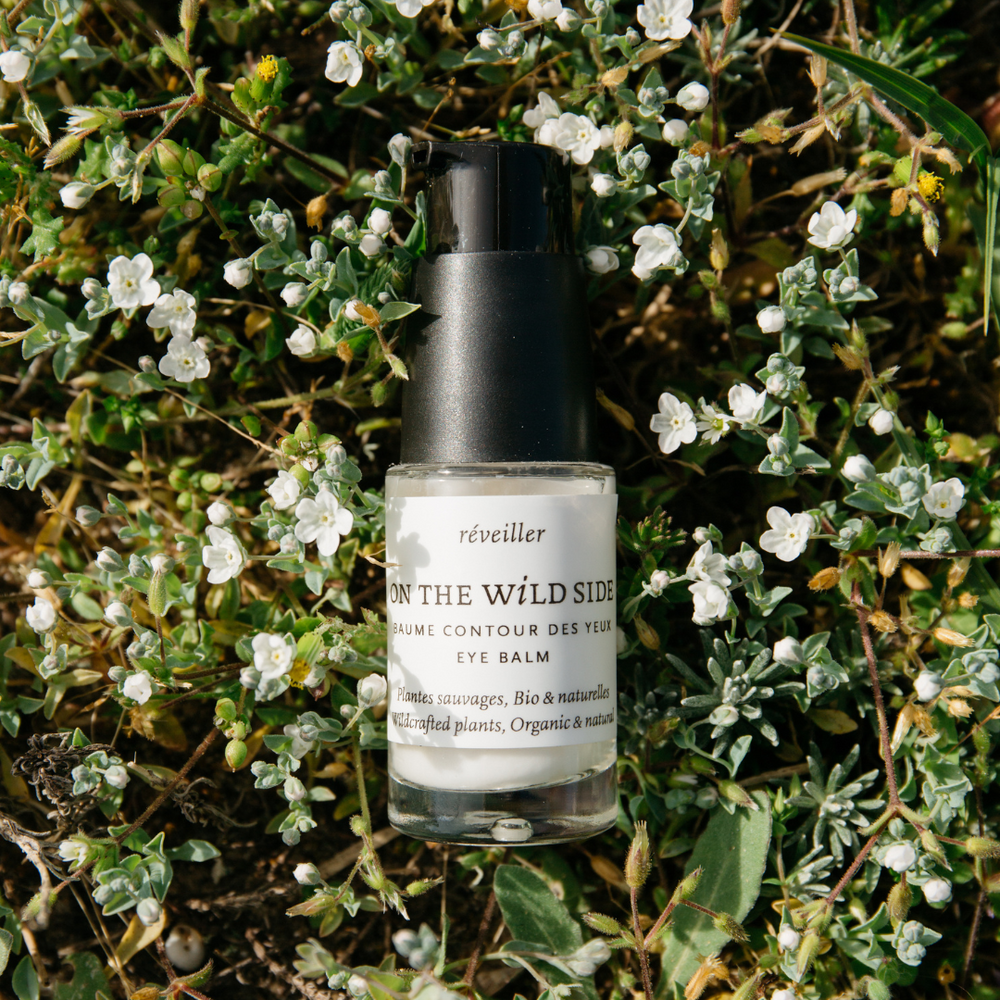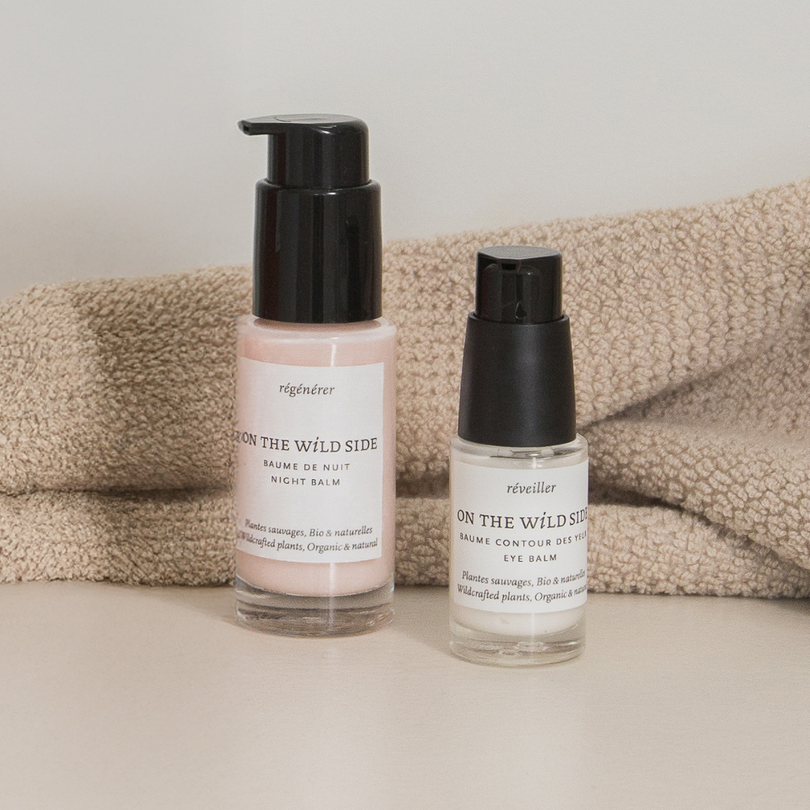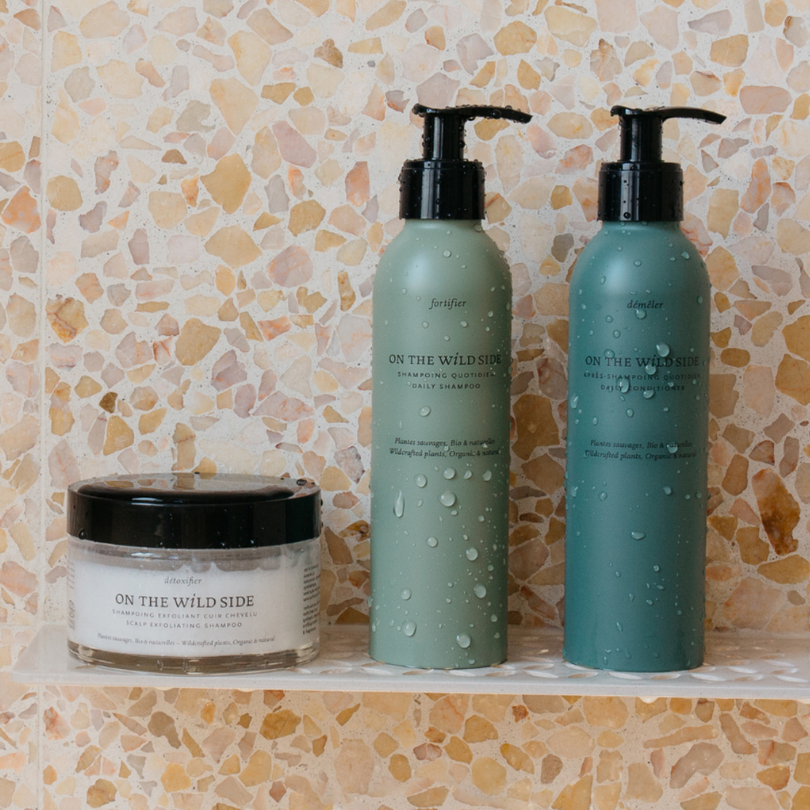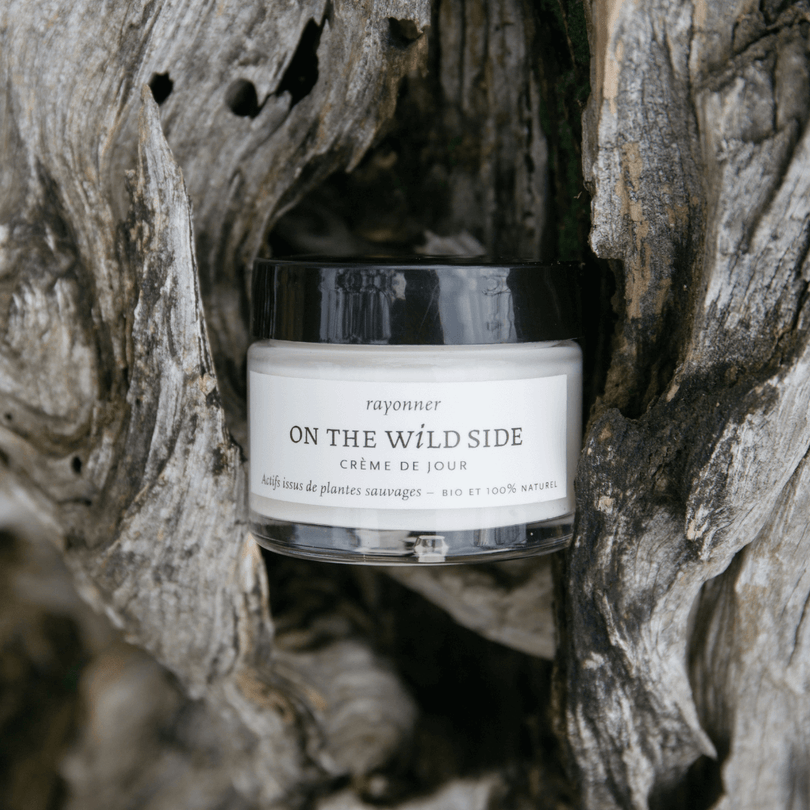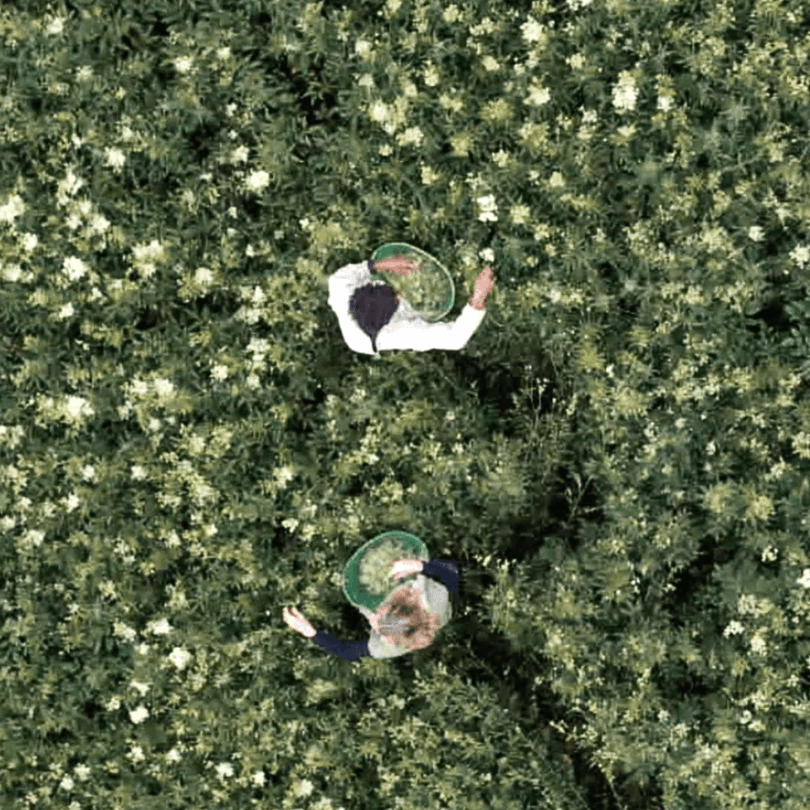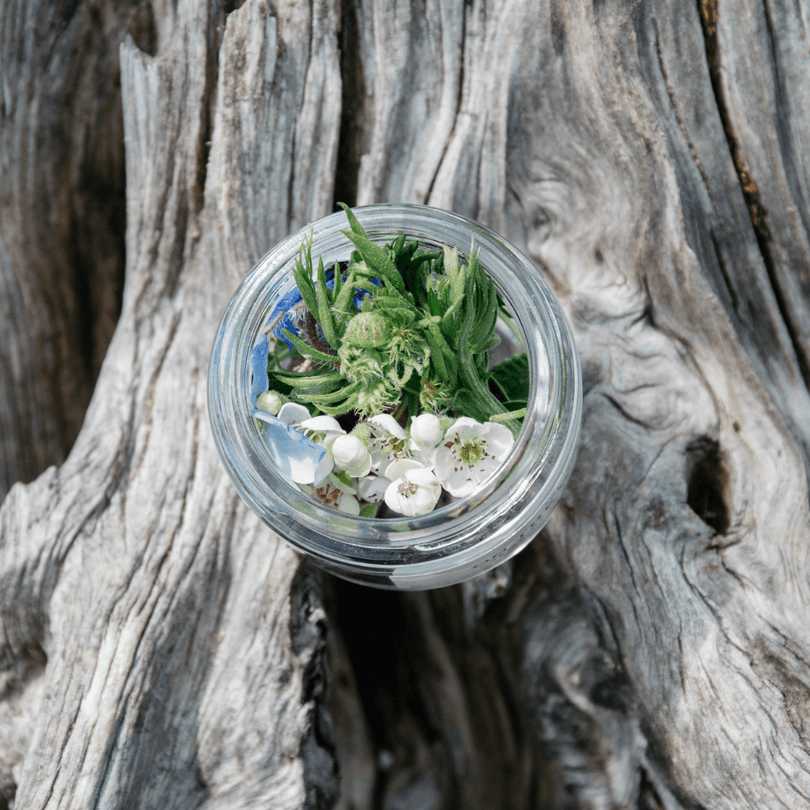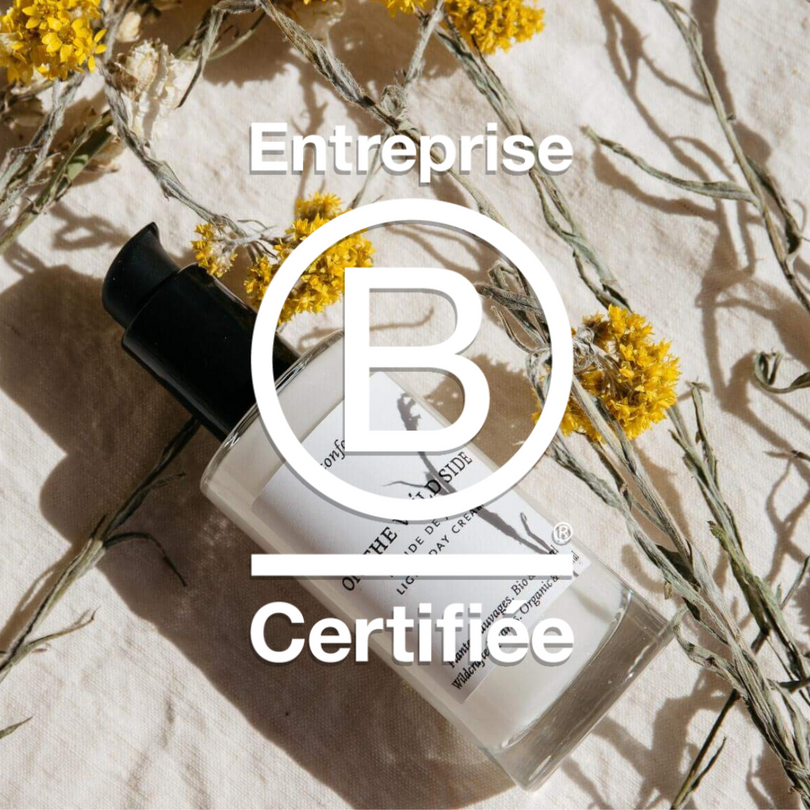A farmer-gatherer in Dordogne and founder of Born To Be Wild , she is now closer to the land and can take concrete action to preserve biodiversity.

You were already involved in biodiversity issues as a legal advisor on nature protection. Has this been a passion of yours since you were a child?
From the start, Born to Be Wild has aimed to bring biodiversity back to the vineyard in which it is integrated thanks to aromatic and medicinal plants, honey plants, large areas of unmown grass, hundreds of trees planted (we plan to plant 1000 in 2020!), the establishment of a food forest, and the permacultural and resilient practices adopted. We also plan to rehabilitate an old orchard to transform it into a perma-orchard of vines and edible plants, in symbiosis, and the diversification of our crops with cereals and soybeans, alongside the vines and aromatic and medicinal plants. There are many projects to be done and as we work with nature, it will take many years to see the results! But already, it is a pleasure to see that our spaces are home to more and more birds, bats, insects, butterflies, snakes, foxes, hedgehogs...
By becoming a farmer-gatherer and founding Born to Be Wild in 2017, I wanted to continue my work as a legal advisor for the preservation of biodiversity. Today, I no longer write legal texts, but through my relationship with nature and my agricultural practice, I always try to shape a better world, humbly. The agriculture of tomorrow must be entirely natural, but also connected to a living soil, air, light, and the living beings around us.
We should be inspired by nature, love it, preserve it, and stop acting against it or forcing it. It is with these goals in mind that I design Born to Be Wild as a generator of experiences, to arouse curiosity about aromatic, wild, and edible plants, to allow people to renature themselves. We protect nothing better than what we truly know and what we love. We have been so disconnected from nature that everything has to be relearned. But this learning is so rich!
What triggered your change of career?
There were several concurrent factors, as many calls, but the trigger was above all reading the book How Everything Can Collapse by Paolo Servigne and Raphaël Stevens, which analyzes the probable collapse of our thermo-industrial society in light of the irresponsible actions taken against the environment over the last 50 years. This book acted as a discharge, with the need to drop everything to live autonomously and in harmony with nature. However, I quickly realized that total autonomy is a utopia and that we deeply need individual interactions and complementarities, as happens in nature in fact, to live and grow . My reconversion was then rather dictated by the need to return to the Earth, to take my responsibilities and contribute on my scale. Becoming a peasant-gatherer is also a political choice, as much as a life choice.

What is responsible harvesting?
There is a real revival for wild picking and it is truly a wonder to see that people want to reclaim this almost lost knowledge . If there is one activity that humanity has always practiced, it is picking! However, I am sometimes dismayed to see certain practices on social networks... Firstly, we do not start wild picking without knowing the plants beforehand! Mistakes are common and every year accidents occur, for example pickers who have confused lily of the valley and wild garlic, which have similar habitats, or black elderberry and yèble elderberry... So before going picking, you must be trained! Secondly, before picking in a place, you must systematically inquire about the owner of the premises, because you must always obtain their consent. Even in a park, there may be specific regulations to limit picking with the aim of preserving biodiversity or a particular species (such as Arnica montana ). Finally, when we pick, we only take what we need for personal use and, as far as possible, we avoid systematically returning to the same places year after year.
This ethic is essential to me because we are all responsible. Some sites have been decimated, sometimes for financial gain. I highly recommend watching the 2019 documentary "Pieilleurs en résistance" by Julien Despres, which highlights sustainable practices to avoid looting.
Do you have any rituals when picking?
I really enjoy going foraging with my copper pruning knife and herb knife, which are beautiful and pleasant objects to handle but which are also attributed beneficial properties to the garden and the soil beyond the fact that copper is a trace element essential to life. Then before proceeding with the actual harvest, I observe a lot, I sit down to listen to the sounds of the wind and the wildlife present, I take the time to soak up the elements surrounding me. The return to the Earth, this rediscovered link to Nature has revealed a lot of things on a personal level, particularly in connection with my sacred feminine. Today I have enormous confidence in my intuition, my natural instinct and it is sometimes deeply magical to observe how everything is connected, that nothing happens by chance, events, encounters...
Your advice for becoming a picker?
Above all, I would advise taking the time to reflect and learn. It is very tempting to believe that we are evolving in a soft and bright world made only of flowers and colors... The agricultural reality is however harsher, the conditions difficult, with permanent climatic hazards, and low profitability. I therefore recommend to all those who are interested to be well supported in their approach and in their project and to train.
A wild plant that you would recommend to boost immunity?
In winter, I regularly take cures of rosehips, the fruit of the dog rose or wild rose ( Rosa canina ). Rosehips are extremely rich in vitamin C, 10 to 20 times more than lemon or orange, it is said, which helps boost the immune system and contribute to good winter defense! It is an excellent local and wild source easy to find during walks, accessible to all!
What does the word "wild" mean to you?
In this regard, I think we share the same vision, the same philosophy regarding the vital need to re-wild ourselves and the world. Our connection to nature has been radically severed by our current lifestyles and the society that imposed them. However, we are living beings, absorbed in a globality that surrounds us and surpasses us, itself composed of other living organisms. This connection to nature, to our wild interior, is still present, somewhere buried, which is also shown by our rediscovered calm or serenity as soon as we observe birds or find ourselves in natural spaces for a weekend, for example. We all have a wild side to which we can reconnect. This is why I chose Born to Be Wild. Today is the time to renature ourselves and find ourselves, in connection with the Earth.

